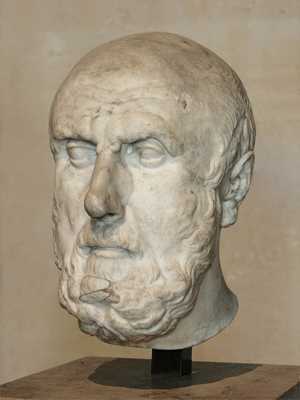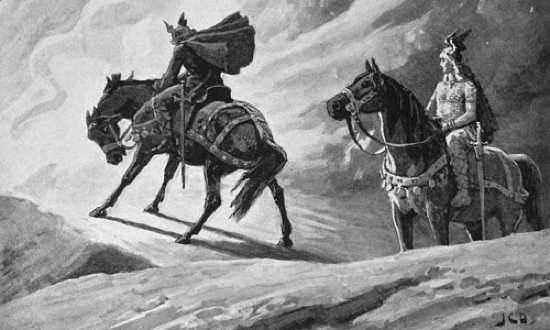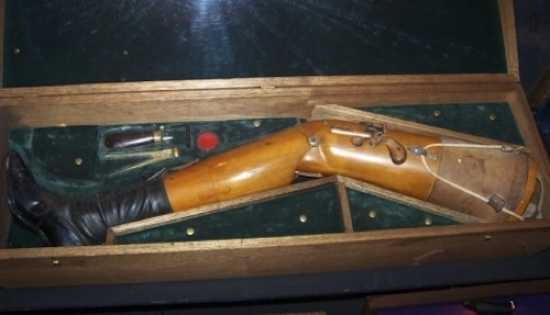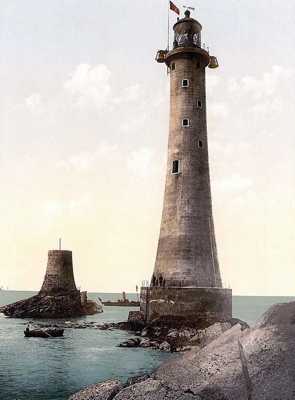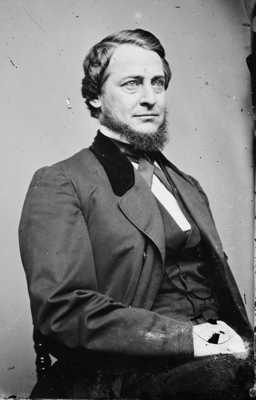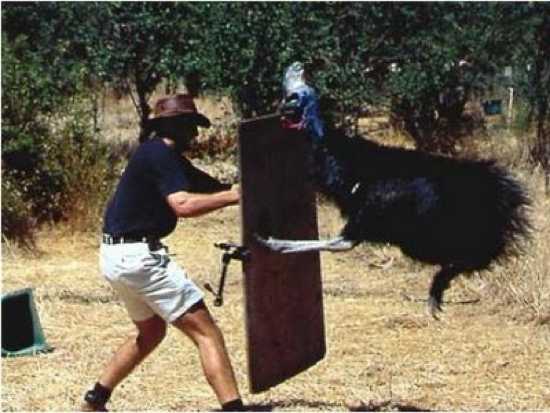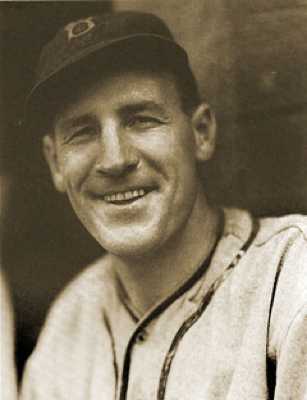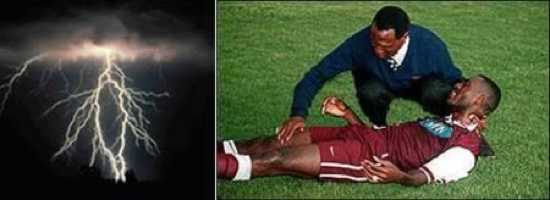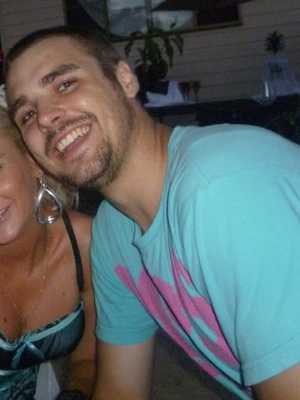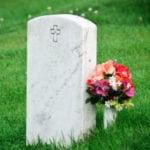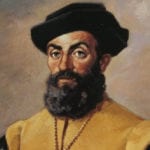Chrysippus was a Greek stoic philosopher. He spent his life thinking about the world and how it works. During his lifetime, he devised various theories on topics such as ethics, mathematics, physics, epistemology and religion. His favorite topic of thought was, without a doubt, logic. He made it onto this list because of the humorous way that he died. He fed a donkey some wine and watched it eat figs from a tree. He found this visual so funny that he started laughing and he never stopped. Laughing causes strained breathing, and continuous hard laughing can put the heart at strain and, as in this case, cause death.
Sigurt Eysteinsson was the second Viking Earl of Orkney. He was a vicious and relentless Viking leader with many enemies. Late in his rule, he challenged one of his enemies (Máel Brigte the Bucktoothed) to a 40 man-per-side battle. Sigurt was an untrustworthy Viking, and he brought 80 men to the battle; they cut down Máel and his troops effortlessly. After the battle, Sigurt decided to take a trophy of his win and tied Máel’s head to his horse. As he rode, the head knocked against his leg, causing a tooth to make a small scratch. Considering there are more bacteria in a person’s mouth than in their butt, and the poor medical knowledge of the age, it is not surprising that his leg became severely infected and he died days later.
Sir Arthur was a lifelong soldier and served under King Charles I in the English Civil war. During his life at war, he lost a leg. This lost limb would eventually be his downfall; his untimely demise came as the result of thieves beating him to death with his own peg leg. They believed that he hid money in a chamber in the leg (he did not) and continued to beat him with it until it broke open to reveal nothing. By this time Arthur had died a brutal death in vain.
Henry Hall was the lighthouse keeper of the Eddystone Lighthouse, in Cornwall. On the 3rd of December, 1755, a fire broke out in the wooden Rudyerd’s Tower. Henry and his two companions tried in vain, but could not put out the fire. They escaped onto the rocks outside the lighthouse, before watching the rest of the lighthouse burnt down. The next morning, all three of them were rescued off the rocks by boats. On the 5th of December, Henry suddenly died, regardless of showing signs of improvement. An autopsy performed after his death revealed that, whilst looking up at the burning light house, a piece of molten lead fell into his mouth, burning its way through his esophagus and ending in his stomach. The doctor removed a six ounce piece of lead burnt into his stomach lining.
Clement Vallandigham was a US congressman and political opponent of President Abraham Lincoln, and was representing a defendant in a murder trail when he died. The accused was said to have killed a man during a barroom brawl. Clement argued that it could have been possible for the man to shoot himself in the leg as he drew his pistol out of his pocket. While demonstrating with a loaded gun, Clement accidentally shot himself in the leg, severing the femoral artery, resulting in death a few minutes later. The defendant was acquitted and set free.
On the 6th of April, 1926, Phillip McClean and his brother (16 and 13) walked into their garden to discover a cassowary (3rd largest flightless bird) relaxing on their lawn. The boys decided to kill the bird by hitting it with a bat. Phillip took a swing but missed, managing only to anger the bird. The bird jumped up and aimed a round house kick at Phillip’s neck, catching him dead on. Phillip managed to get up and run away, only to drop dead after a short distance, from severe blood loss. Cassowaries are known to be dangerous birds, but out of 221 recorded attacks, this is the only death.
Len was a Major League baseball player, who played for both the Brooklyn Dodgers and the New York Giants. During an unsuccessful season playing for the Dodgers, Len was cut due to his ever-increasing alcohol problem. On the flight home to New York he became aggressive and had to be restrained after fighting with flight attendants, other passengers and the captain. Once in New York, Len chartered a flight to Buffalo. On the flight his alcohol consumption increased and, again, he became aggressive. He decided to pick a fist fight with the pilot in mid-flight. When the co-pilot and flight attendant could not intervene in the assault, the pilot then hit him over the head with a fire extinguisher to subdue him, and made an emergency landing on a race track. Len died of a fractured skull and severe hemorrhaging of the brain.
Alan Stacey was a British Formula 1 driver for Lotus. During the Belgian Grand Prix of 1960, Alan was driving 120 mph/190 km/h, when a bird flew into his face. Alan lost control of the car and he climbed the embankment on a tight turn, which sent him flying into thick bush hedges, only to come to a stop in a field beyond the hedges. It is still unknown exactly how or when in this accident Alan died: it could have been the force of the bird that broke his neck, or the bird could have knocked him out and then he died in the colossal accident that resulted. Ultimately, it’s irrelevant when he died during the accident because, with luck like that, death could never have been very far away.
In October 1998, during a football/soccer match in the eastern Kasai Province of the Democratic Republic of Congo, a freak strike of lightening hit the pitch. The score was 1-1 when the lightening hit the visiting team. It killed all 11 members of the Bena Tshadi, team and burned 31 other people on and around the field. The home team (Basanga) was left completely unharmed, which called up a lot of suspicion of witchcraft. Strange as it may seem, this was not the first instance of lightning hitting a football field, as a similar incident was reported only weeks prior to this incident in South Africa, where lightning struck the field, causing several players to fall to the ground and seven to be taken to hospital. Luckily, in that case there were no fatalities.
Acton Beale fell seven stories from a balcony of a flat block in Brisbane. This all happened whilst attempting to plank on the balcony railings of the 7th story. Planking is a fairly modern internet craze in which participants lie face down on various objects and upload photographic evidence of it online. Planking is known in various other countries as playing dead, extreme lying down and face-downs. Beale’s untimely death has provoked a growing concern regarding the fad, but has not stopped millions of people around the world, including Hugh Hefner, from trying it out.
